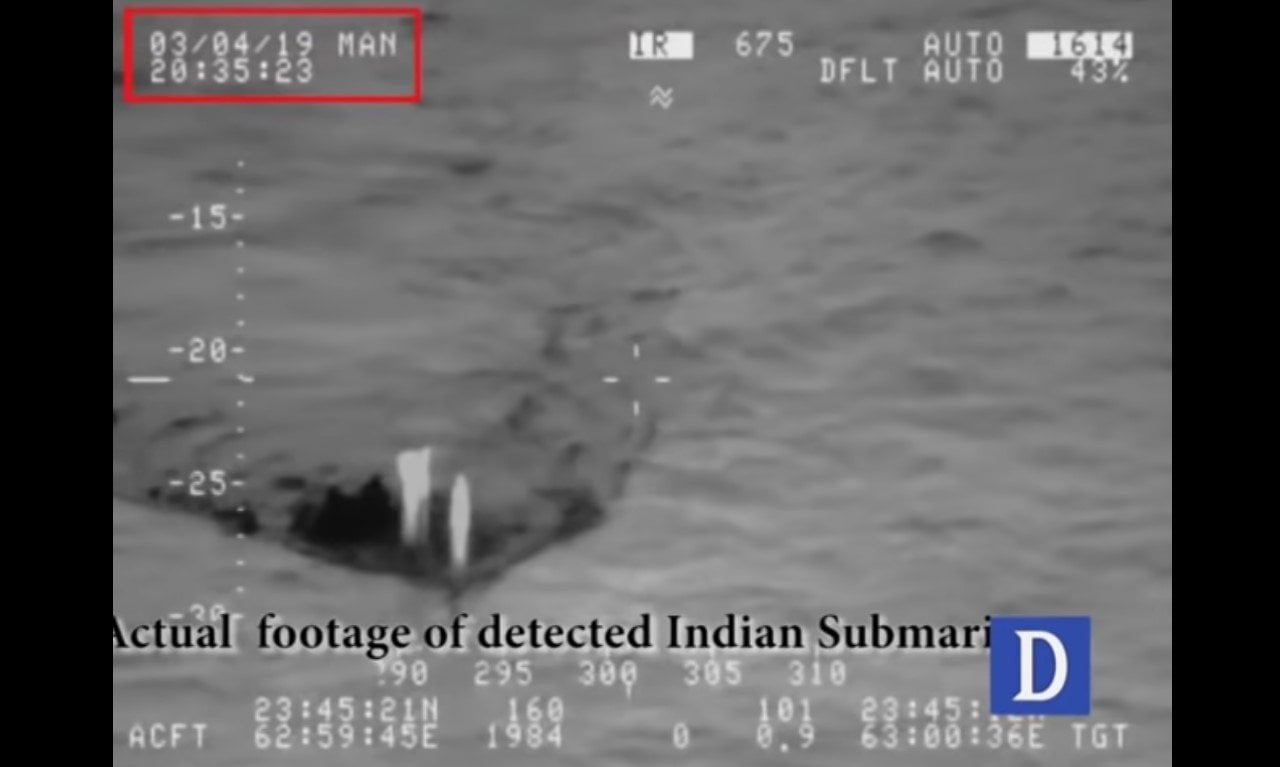Early Tuesday morning news broke of the Pakistan Navy allegedly thwarting an Indian submarine from entering Pakistani maritime territory. The Pakistan Ministry of Information and Broadcasting took to social media to discuss the event.
The Pakistan Navy successfully thwarted the attempt of Indian Submarine trying to enter Pakistan’s water. The submarine was not targeted by the Pakistan Navy keeping in view the government’s initiative of peace in mind pic.twitter.com/yDHrm7Bvoj
— Information Ministry (@MoIB_Official) March 5, 2019
“The submarine was detected and localized in Pakistan’s maritime zone on March 4,” read a statement by Director General, Pakistan Navy Public Relations, Major General Asif Ghafoor. “The submarine could have been easily engaged and destroyed had it not been Pakistan’s policy to exercise restraint in the face of Indian aggression and to give peace a chance to prevail. However, the submarine is being kept under watch along with monitoring of other Indian navy units. The detected submarine is one of the latest submarines of the Indian Navy,” the statement continued. Indian outlets have also reported the claim by the Pakistan Navy through various forms of media.
“The Pakistan Navy used its specialized skills to ward off the submarine, successfully keeping it from entering Pakistani waters,” the Pakistan Navy spokesperson stated. If reports are accurate the intrusion of the Indian Navy into Pakistan territory is the latest escalation in a series of events between the two nations since the February 14th Pulwama terrorist attack.
Recent Tension Between India And Pakistan
After the Pakistani government claimed to shoot down two Indian Air Force jets, the government returned a captured pilot back to India. The identity, whereabouts, and state of the supposed second pilot remain unknown.
“We are releasing the Indian pilot as a goodwill gesture tomorrow,” Prime Minister of Pakistan, Imran Khan stated on February 28th. A report by various Associated Press reporters detail the event:
The pilot, identified as Wing Commander Abhinandan Varthaman, was taken in a convoy that set out from the eastern Pakistani city of Lahore to the border crossing at Wagah earlier in the day, escorted by military vehicles with soldiers, their weapons drawn. The Pakistani military has said his plane was downed on the Pakistani-held side of Kashmir on Wednesday. Varthaman was accompanied to the border by the International Committee of the Red Cross. His handover took several hours as a roster of procedures were completed including a medical checkup to verify his health and condition before being handed over to his countrymen.
Unfortunately, the gesture has not lowered tension between the two nations considering the most recent alleged submarine activity. “Crew members on Air India flights have been directed to end each announcement with the phrase “Jai Hind” (victory to India), as tensions continue with Pakistan,” The Telegraph reported earlier this morning.
“We have seen how quickly terrorist groups evolve across the globe and this particular ‘brand’ of terror may well become a global problem in the near future,” the outlet also reports The Chief of the Indian Naval Staff, Admiral Sunil Lanba stating today. “We also have reports of terrorists being trained to carry out operations in various modus operandi, including through the medium of the sea,” The Times Of India reports the Admiral stating during a briefing. The statement perhaps provides insight as to the rationale of an Indian Naval submarine encroaching on Pakistan waters.
Continued Tough Rhetoric And Rising Escalation
“We recently saw the horrific scale of the extremist attack in Jammu and Kashmir about three weeks ago. This violence was perpetrated by extremists aided and abetted by a State that seeks to destabilize India,” the Admiral continued the harsh rhetoric from Indian officials towards Pakistan, despite not directly naming the nation.
According to CNN, the United States government is “looking into reports that Pakistan misused American-made F-16 jets during an aerial engagement with India last week.” Such an action by the Indian Air Force would be a violation of the terms of use by the US. As analyzed by Value Walk exactly a week ago, this past week in the Indo-Pakistan conflict has been “critical in the long-term relationship between the two nations.”
Even if a full-scale war is not the result, Prime Minister of India Narendra Modi is gaining in popularity as Indian elections approach in the next several months. It could be politically expedient for the Prime Minister to use the rising nationalism in India after the Pulwama attacks to help him gain electoral victory while distracting from the economic angst of India’s working-class population.
VIDEO:




